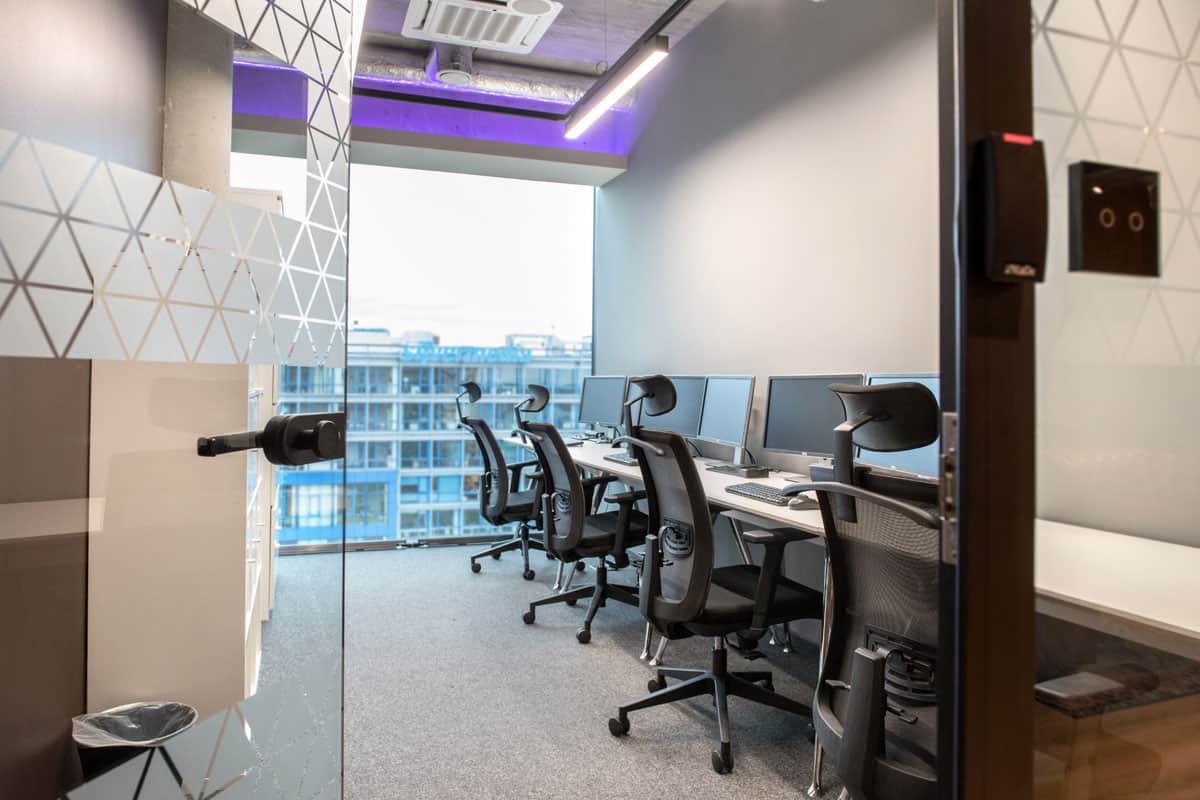In an interview with Piotr Boulangé, the founder of Multicowork, we talk about co-working becoming more popular during the pandemic, the benefits from coworking and its potential, as well as about how businesses use the serviced offices for hybrid work.

Office space operators have diverse approaches the current market conditions. What do you think about the pandemic situation?
PB – The pandemic clearly showed two types of operators being present on the office spaces market. The first are flexible operators, understanding the needs of the customers who use the offices and able to present them with tailor-made offers. The other type seems not to notice the changes, cashing in the rent and insisting that the contracts are not negotiable. Luckily, the first group is growing and evolving. This is demonstrated by a growing number of co-working spaces. To my knowledge we have around 500 such spaces in Poland and a lot of potential customers.
Are coworking and flexible serviced offices a recipe for development during the pandemic?
PB – Often yes. The pandemic made managers at companies realize the benefits of functioning in novel models, e.g. the remote and hybrid working model, combining the benefits of working at the office and working from home. The financial benefits resulting directly from the introduction of remote work are significant, as the costs of providing office space to employees may reach as high as 2000 zloty per employee per month. Obviously, a company might never entirely abandon the head office. A certain part of the team must work there on an everyday basis. The important part, however, is that the rest of the team needs to appear there only once in a while. Coworking spaces fill in this gap.
The biggest downsides and upsides of hybrid work?
PB – First – the employee is in touch with the team, which is invaluable. Also, not everyone has the appropriate conditions to work at home, e.g. when there are other people present, who also work remotely. Each company has a certain “core personnel”, i.e. people who have to work at the office daily. On the other hand, commuting to work may constitute a crucial cost for many employees – in terms of the cost of fuel, fares, car parking and travel time. The hybrid work model, i.e. using the flex coworking offices, is the best option for them. You may divide employees into two groups. They will use the office – equipped with modern office equipment, fast Internet connection, conference rooms and multimedia devices – on specific days of the week and of the month. This will allow the employer to reduce office space, adjusting it to the current needs.Employees alternate their use of the office, taking turns in using the desks. The Multicowork solution allows the employees to work in comfortable office conditions. This arrangement is beneficial for both the employer and the employees.
Undoubtedly, the benefit is the ability to work in a team without territorial limitations. The head office of the company may be located in Kraków but thanks to the coworking arrangement it may provide the employee with an appropriate workspace in Łódź, Bydgoszcz or Gdańsk. This is the way to develop an office chain that was selected e.g. by Loftmill, a Kraków-based operator who extended such a flexible offer to its tenants during the pandemic. By this Loftmill not only not avoided freezing its growth, but even expanded into new markets.
Do you think that we are mentally ready for such solutions?
PB – As the lawyers tend to say – yes and no. It is the preferred solution for businesses seeking to improve work quality. Many organizations work on implementing hybrid working arrangements, as they may prove both cheaper and more comfortable for the employees. Businesses who prefer to keep an eye on their employees are afraid to lose control over them and are really not eager to let employees skip the office. In my opinion this is detrimental to such businesses in the long run. Everyone noticed that flexible working arrangements are now possible. People employed at such companies will not be happy with their work and there is no greater burden for the company than an unhappy employee.

